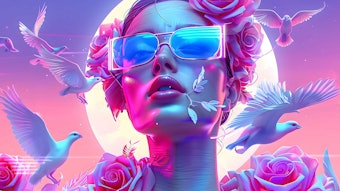
Benzene, a known human carcinogen per the U.S. Centers for Disease Control and Prevention (CDC), has been detected in several brands and batches of sunscreens at concentrations above the permitted 2 ppm, Valisure LLC reported. One industry insider noted, in NewBeauty, this is likely due to trace contaminants from organic UV filters, though not all products testing positive were sunscreens.
Valisure analyzed 294 different product batches from 69 different companies. Significant variability from batch to batch was observed. Fourteen lots of sunscreen and after-sun care products from four different brands contained between 2.78-6.26 ppm of benzene; 26 lots from eight brands contained detectable benzene between 0.11-1.99 ppm; and 38 lots from 17 brands contained detectable benzene at < 0.1 ppm.
The following products were reported to contain 2 ppm or higher benzene (see Pages 12-15 of the petition for complete information on the products tested, including UPCs, lot numbers, expiration dates, active ingredients and average benezene ppm levels detected):
- Neutrogena: Ultra Sheer Weightless Sunscreen Spray SPF 100+ (2 lots) and SPF 70 (3 lots); Beach Defense Oil-free Body Sunscreen Spray SPF 100 (3 lots); Invisible Daily Defense Body Sunscreen Broad Spectrum SPF 60+; Beach Defense Spray Body Sunscreen SPF 50
- Sun Bum: Cool Down Gel
- CVS Health: After-sun Aloe Vera Soothing Spray (2 lots)
- Fruit of the Earth: Aloe Vera Gel
Benzene was not detected in an additional 217 batches of sunscreen from 66 different brands through the initial analysis of at least one sample, the company reported. Benzene contamination was detected in sprays, gels and lotions with both chemical and mineral-based formulations.
FDA Called to Action
These findings prompted the firm to petition the U.S. Food and Drug Administration (FDA) to take action, namely by asking for a recall of the contaminated batches, and requesting the agency to better define the limits for benzene contamination in drug and cosmetic products.
“Valisure’s research identifying benzene contamination in multiple over-the-counter sunscreen products is an extremely important discovery for several reasons," said Christopher Bunick, M.D, Ph.D. and Associate Professor of Dermatology at Yale University, in the Valisure announcement.
'Because many of the sunscreen products Valisure tested did not contain detectable levels of benzene, it does not appear that benzene use is unavoidable for their manufacture.'
"First, it warns people practicing sun protection and skin care that some, but not all, sunscreens have potentially hazardous benzene contamination. Second, it is important for people, especially heading into the summer months, to understand that many sunscreen products tested by Valisure did not have benzene contamination, and those products are presumably safe and should continue to be used, along with appropriate hats and sun-protective clothing, to mitigate skin cancer risk."
He added, “I believe it is critical that regulatory agencies address benzene contamination in sunscreens, and all topical medications at the manufacturing and final product level, so that all individuals feel safe using sunscreen products.”
In relation, the petition explained, "[The] FDA currently recognizes the high danger of this compound and lists it as a 'Class 1 solvent' that 'should not be employed in the manufacture of drug substances, excipients and drug products because of their unacceptable toxicity ... However, if their use is unavoidable in order to produce a drug product with a significant therapeutic advance, then their levels should be restricted'—and benzene is restricted under such guidance to 2 parts per million (ppm)."
It continues, "Because many of the sunscreen products Valisure tested did not contain detectable levels of benzene, it does not appear that benzene use is unavoidable for their manufacture, and considering the long history and widespread use of these products, it also does not appear that they currently constitute a significant therapeutic advance; therefore, any significant detection of benzene should be deemed unacceptable."
PCPC Response
The PCPC issued the following statement in response to Valisure's report: “The Personal Care Products Council (PCPC) and its member companies are strongly committed to ensuring consumers have access to cosmetics and personal care products with ingredients that have been thoroughly tested for safety and follow the requirements of the law.
"There is nothing more important than safety. If our consumers can’t believe in a product or rely on it to do what it says, then nothing else matters. We are aware of the citizen’s petition filed with the U.S. Food and Drug Administration (FDA) and are carefully examining its findings.
'The PCPC and its member companies are strongly committed to ensuring consumers have access to cosmetics and personal care products with ingredients that have been thoroughly tested for safety and follow the requirements of the law.'
“Sunscreens on the market today are backed by decades of safe use to help adults and children guard against the dangers of sun exposure. The FDA, Centers for Disease Control and Prevention (CDC), U.S. Surgeon General, American Academy of Dermatology, Skin Cancer Foundation and health professionals worldwide consistently advocate for the use of broad-spectrum sunscreens as part of a safe-sun regimen. These products play a critical role in the fight against skin cancer.
“Nonprofit health organizations and government agencies recommend using sunscreens as part of a safe-sun regimen to help prevent against skin cancer. CDC’s Sun Safety recommendations note the importance of daily sunscreen use to help prevent most skin cancers, even on cloudy and overcast days.
“As sunscreen manufactures, our goal is to provide our consumers with access to a wide variety of safe, effective and innovative sunscreens so they can make informed decisions. Sunscreen is an important part of an overall safe sun program. It is our hope that using sunscreen becomes as much of a habit as putting on your seatbelt.”
Follow us as we report on this developing story.










